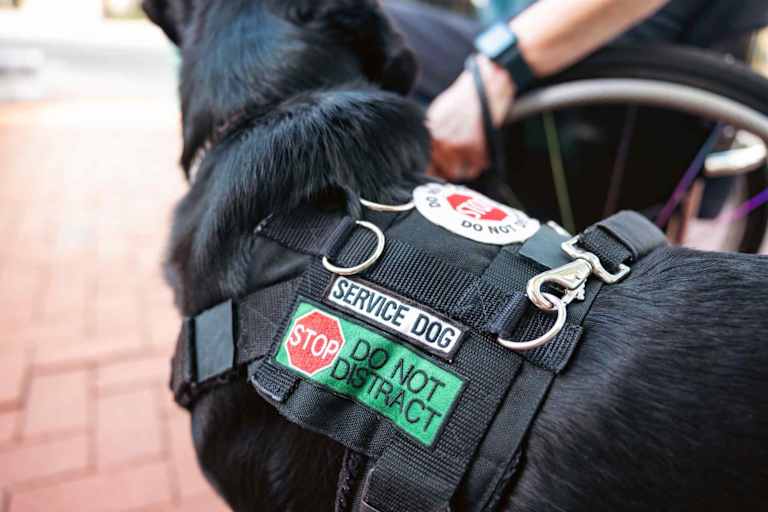Navigating Online College With a Disability
About a quarter of college students earned a college degree online as of 2022, according to the National Center for Education Statistics. Internet-mediated education has swelled in popularity since the pandemic.
Students with disabilities may be especially interested in the potential of online learning to overcome barriers and make education more accessible. Explore our guide below to learn more about the drawbacks and benefits of online education for students with disabilities.
Why Some Students With Disabilities Choose Online Learning
Some students with disabilities choose online degrees because these programs are flexible and easier to access from home. For example, people with mobility impairments don’t have to navigate a college campus, and students with ADHD can switch tasks when they need to.
Importantly for some learners, online education lets you keep your accommodations between you and the professor. Consider some other pros and cons of online learning:
Pros
- Accessible Content
- Social Benefits
- No Physical Barriers to Learning
Cons
- Information Accessibility Issues
- Lack of Social Support
- Screen Fatigue
How to Request Accommodations in Online Courses
Every school should have a disability or accessibility office to support students with disabilities. These offices extend their services to online students as well as on-campus learners. Online students may request and receive accommodations, such as extended time, live captions, or note-taking support for recorded lectures.
Step-by-Step Guide to Registering With Disability Services
If you think you’ll need to access support during your college career, then you should register with your school’s office of disability services as soon as possible. While each school’s registration process is different, the general process for requesting accommodations works as follows:
- Contact the office of disability services. The office will probably ask you about what accommodations you need, have you fill out an application, and let you know what documentation they require.
- Submit all required documents. You must provide proof of your disability, such as a copy of your high school IEP plan or a letter from your physician or primary care provider.
- Meet with a representative from the office of disability services. A staff member in the office of disability services will set up an in-person or online appointment to discuss the details about the challenges you face and the accommodations you need.
- Notify your professors about your eligibility for accommodations. Once you have confirmation of your eligibility for accommodations, let your professors know how they can best meet your needs.
Choosing an Accessible Online College
Besides looking at tuition costs, available majors, and career support, you’ll need to consider several factors when choosing an accessible online college. If possible, talk to both your admissions counselor and the disability services office before you enroll. No question should be off the table. Consider asking things like:
- “I need assistance with ______. Can you accommodate that?”
- “What assistive technologies are available to me as an online student?”
- “I need regular talk therapy. Can you provide that for me through a secure and reliable online portal?”
What to Look For in Online Platforms
Online colleges draw from a small pool of learning management systems, such as Blackboard, Canvas, and Brightspace. These systems generally aim to be barrier-free for students with hearing, mobility, learning, or visual disabilities. Despite the best intentions, however, not all platforms are fully accessible. Asking for alternative learning tools or additional support is okay.
Resources for Online Learning for Students With Disabilities
Association on Higher Education and Disability
AHEAD is a professional organization that conducts research, promotes evidence-based practices, and advocates for legislation that supports people with disabilities in higher education.Mobility International USA
MIUSA is a global disability rights and leadership organization. It provides extensive information and support for students with disabilities participating in international education exchange programs.Campus Disability Resource Database
This comprehensive, searchable database contains disability-related information regarding degree-granting colleges and universities in the U.S. The site lets you search by state, degree type, and public or private school.National Center for College Students With Disabilities
An initiative of the University of Minnesota, NCCSD is a federally funded program that conducts and publishes research on disability and higher education. The website includes lists of campus and crisis resources.Accessible College
Accessible College helps bridge the gaps between educators, families, and students with physical disabilities. Programs include college planning and post-transition college coaching.
Frequently Asked Questions About Enrolling in Online College With a Disability
As an online student, your right to reasonable accommodations is protected under the Americans with Disabilities Act Amendments of 1990 and Section 504 of the Rehabilitation Act of 1973. The modality of your education does not affect your right to an education.
Explore More College Resources

What Is a 504 Plan?
Discover the purpose and differences of a 504 plan, how it applies to college, and the accommodations available for students with disabilities.

Guide to Disability Rights in College
Students with disabilities have rights in college. Learn more about what your rights are and how to advocate for yourself using our guide.

Guide to College Accommodations for Students With Disabilities
If you have a disability, learn how to request accommodations in college to get equal opportunities and support to thrive during your studies.